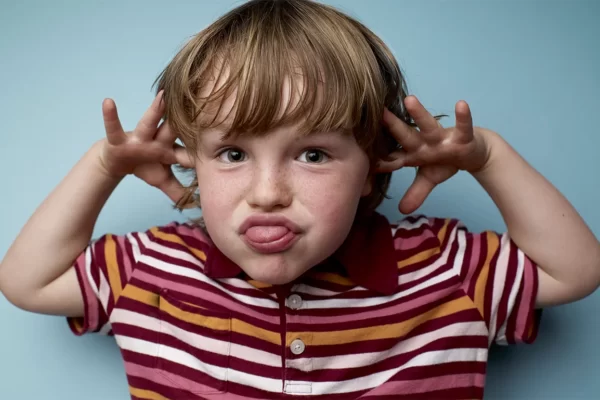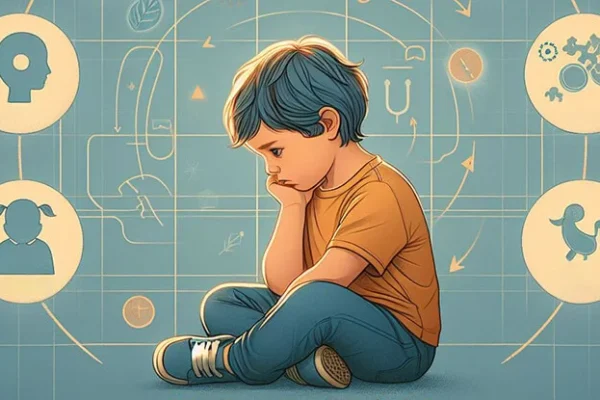Speech is not just a tool for communication but the foundation upon which a child’s self-esteem is built. From the first years of life, a child learns about the world through interaction with others, and if their words “stumble,” falter, or sound different from those of their peers, it inevitably affects their self-perception.
Speech therapy problems—whether it’s dyslalia, stuttering, or delayed speech development—are often viewed merely as technical difficulties that can be corrected with exercises. However, behind every mispronounced sound or awkward pause lies a living emotional experience: the fear of being laughed at, frustration from failures, and sometimes a painful sense of “I’m not like everyone else.”
Imagine a first-grader who forgets a memorized poem during a performance due to stuttering and hears classmates laughing. Or a preschooler whose mispronunciation is mimicked by other children. In these moments, the child doesn’t just face a language barrier—they receive a signal: “You don’t measure up.” If such situations repeat, they form a persistent sense of shame and inadequacy. Even without overt bullying, children with speech disorders often adopt avoidance strategies: staying silent in class, refusing games that require communication, or convincing themselves in advance: “I won’t succeed.”
But why do some children take their difficulties in stride while others experience them acutely? It all depends on the environment. Harsh criticism, comparisons with others (“Look how well your sister speaks!”), or, conversely, overprotectiveness (“Let me say it for you”) only worsen the problem. Meanwhile, patience, a focus on strengths, and the right support can turn speech correction into not a source of stress but a path to confidence. In this article, I’ll explore how speech therapy challenges affect a child’s self-esteem and, most importantly, how to help them navigate this stage without losing faith in themselves.

How does a child become aware of their speech difficulties?
Speech problems in children rarely go unnoticed—sooner or later, the child begins to realize that their speech differs from that of others. But how exactly does this awareness emerge? And what does a child feel when they notice they speak differently?
The realization of their differences doesn’t happen all at once. It’s a gradual process influenced by many factors: age, environment, reactions from adults and peers. Some children start noticing the difference as early as 3–4 years old, others—only in school, when faced with the need to speak aloud frequently. But in any case, this experience significantly impacts self-esteem. Let’s examine how children come to understand their speech difficulties and how to help them navigate this stage without unnecessary distress.
At what age do children start noticing they speak differently from their peers?
The first signs of awareness of speech differences appear in children as early as 3–4 years old. At this age, a child actively compares themselves to others: they notice that some sounds come easily while others don’t work out. For example, a toddler might say: “I can’t say ‘fish’ (рыба), I say ‘lyba’ (лыба).” However, at this stage, children don’t dwell on it—they’re more concerned with others’ reactions than their own mistakes.
By 5–6 years old, the understanding becomes clearer. The child is already well aware of speech norms and notices when their pronunciation differs from their peers’. At this age, children may start feeling self-conscious, avoiding difficult words, or asking parents: “Say it for me.”
In school age (7–10 years), speech difficulties become particularly painful. The child understands that their speech is part of their identity, and if it’s “wrong,” it can invite ridicule. During this period, children often avoid oral answers, conversations with strangers, or public speaking.
The role of feedback: reactions from parents, teachers, and peers in kindergarten/school
How a child perceives their speech difficulties largely depends on others’ reactions.
- Parents—the most important figures in shaping self-esteem. If a mother or father constantly corrects, gets irritated, or, conversely, pretends not to notice mistakes, the child feels that “something’s wrong” with them. But if parents calmly explain that everyone learns at their own pace and praise efforts, the child sees difficulties as temporary.
- Teachers in kindergarten and school also play a huge role. An instructor who rushes, mimics, or holds up other children as examples can heighten stress. Meanwhile, a teacher who gives time to think and doesn’t highlight mistakes helps the child feel more confident.
- Peers—the most unpredictable audience. Some children pay no attention to speech differences, while others may tease or copy mispronunciations. It’s in peer groups that a child often first experiences shame about their speech.
Criticism vs. support: how adults’ comments shape self-perception
A single careless word from an adult can stick with a child for a long time and affect their confidence.
- Criticism (“How many times do I have to tell you, you said it wrong again!”, “Why haven’t you learned yet?”) makes the child feel they’re “bad,” “stupid,” or “not like others.” This leads to a fear of speaking and sometimes a complete refusal to communicate.
- Ignoring (“It’s no big deal, it’ll go away on its own”) is also harmful. The child feels their problem isn’t important and is left to deal with it alone.
- Support (“I know it’s hard for you, let’s try again,” “You’re doing great for trying!”) gives the child strength to work on their speech. They know they’re accepted even with mistakes and believe they can improve.
Awareness of speech difficulties is a complex process influenced by age, environment, and adults’ reactions. The task of parents and educators isn’t just to correct mistakes but to help the child feel confident, even if their speech isn’t perfect yet.
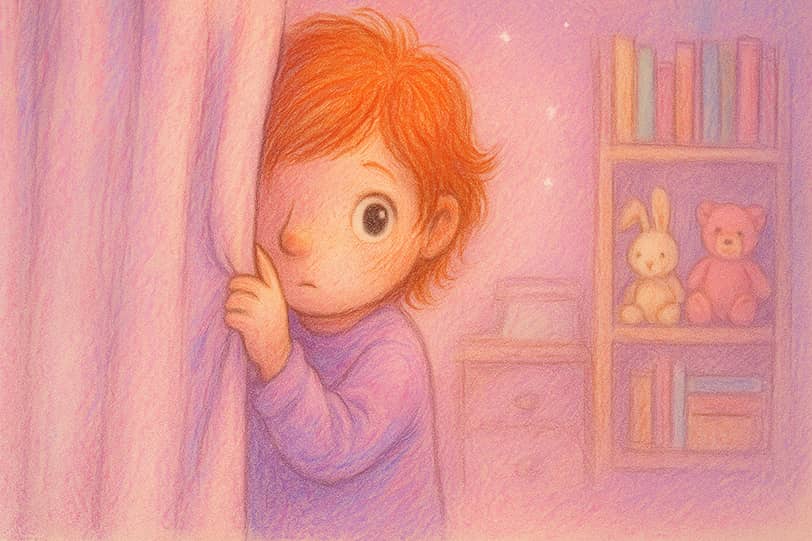
Situations That Hurt Self-Esteem
Speech difficulties in children are not just about mispronouncing sounds or constructing phrases. Every day, a child faces situations where their speech becomes a source of stress, embarrassment, or even pain. These moments, which may seem insignificant to adults, can leave a deep mark on a young person’s psyche, affecting their self-confidence and desire to communicate.
Children with speech disorders live in a world that isn’t always ready to accept them. Classmates may not understand their words, teachers may rush their answers, and relatives may unintentionally compare them to other children. Each such situation is like a small wound that, accumulating, shapes the child’s perception of themselves as “not good enough.” Let’s examine the most common and painful situations faced by children with speech problems.
Teasing from Peers (“You talk like a baby!”)
Children can be brutally direct. When a child mispronounces words, stutters, or struggles to find the right expressions, peers often react immediately: they mimic, mock, or simply exclude them from games because “it’s no fun with them.”
Why does this hurt?
- The child feels like an outcast, “not like everyone else.”
- Teasing fixates attention on the flaw, making it their defining trait.
- Fear of social interactions develops, along with reluctance to attend kindergarten or school.
Real-life example:
7-year-old Vanya, who had a lisp, started inventing illnesses to skip school after months of teasing from classmates. He confessed to his parents: “I don’t want them to laugh at me again.”
Fear of Speaking in Class (Avoiding Oral Tasks)
The school system, built on oral answers and public speaking, becomes a real ordeal for children with speech difficulties.
How does this manifest?
- The child knows the answer but stays silent, afraid of making a mistake.
- Prefers getting a failing grade rather than speaking in front of the class.
- Physical reactions: trembling voice, blushing, sweaty palms.
Why is this dangerous?
Learned helplessness develops—the child is convinced in advance they’ll fail, so they don’t even try. Over time, this mindset spreads to other areas of life.
Being Misunderstood (Child Gets Angry or Withdraws)
When adults or children constantly ask for repetition (“What? Say it again!”) or misinterpret the child’s words, it triggers a storm of negative emotions.
Common reactions:
- Anger (the child may yell or stomp their feet).
- Withdrawal (stops trying to explain).
- Tears and frustration (“No one understands me!”).
Key point:
Adults often mistake this behavior for tantrums, not realizing it stems from the despair of not being heard.
Comparisons to Other Children (“Look, Sasha can recite poems, and you…”)
Seemingly harmless comparisons to more articulate peers or siblings deal especially painful blows to self-esteem.
Why is this harmful?
- The child feels loved conditionally: “If you speak well, we’ll be proud.”
- Envy and resentment toward those they’re compared to arise.
- Motivation to try disappears (“I’ll never be as good as Sasha anyway.”).
What to do instead?
Compare the child to their past self: “You couldn’t pronounce this sound before, but now it’s much better!”
These situations are not just episodes—they’re the building blocks of a child’s self-esteem. The task of adults is to prevent temporary speech difficulties from turning into a permanent sense of inadequacy. By understanding what the child is going through, we can become their support and help them retain faith in themselves.
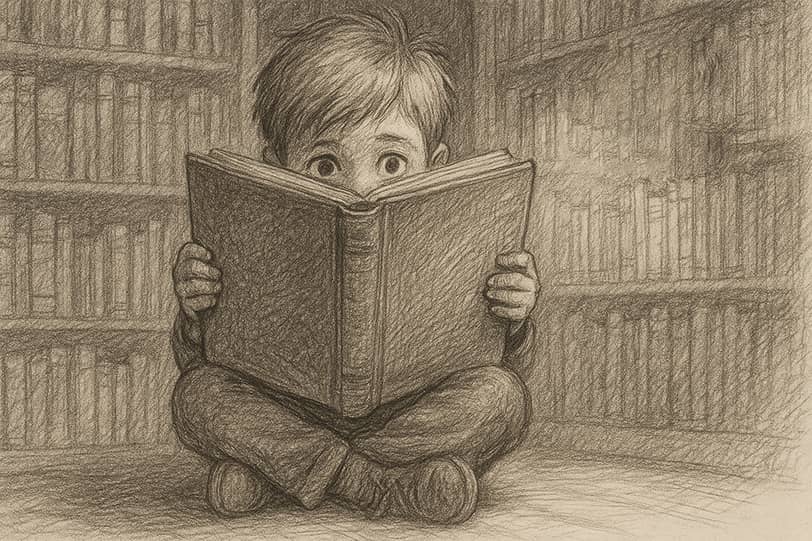
Psychological Consequences of Speech Disorders in Children
When a child faces speech difficulties, it never remains just a problem of pronunciation. Like a snowball, speech disorders bring serious psychological consequences that can affect personality development, social adaptation, and even future professional fulfillment. Every unsuccessful performance, every taunt, or demand to “say it right” leaves a mark on the child’s psyche, which over time turns into persistent psychological behavioral patterns.
Children with speech problems live under constant tension. They don’t just explore the world like their peers—they have to do it through the lens of their own limitations. Imagine what it’s like to know the answer to a teacher’s question but be afraid to raise your hand; to want to make a new friend but fear being laughed at for how you speak. It is from these daily experiences that the psychological consequences we’ll discuss in detail emerge.
Lack of Self-Confidence (“I can’t do it, I’ll fail”)
The development of so-called “learned helplessness” is one of the most common consequences of speech disorders. After numerous unsuccessful attempts to speak correctly, after constant corrections from adults and teasing from peers, the child truly begins to believe they are incapable of mastering normal speech.
How it manifests:
- Catastrophizing (“I can’t do anything right at all”).
- Giving up (“Why try if it won’t work anyway?”).
- Transferring insecurity to other areas (fear of drawing, singing, playing sports).
Example:
8-year-old Anya, who struggles with pronouncing certain sounds, refuses to participate in a school quiz even though she knows the material well. When the teacher asks why, she replies: “I’ll just mix everything up and say it wrong anyway.”
Anxiety (Fear of New Situations Requiring Speech)
For children with speech disorders, every new social interaction is a potential source of stress. They live in constant anticipation of failure, leading to persistent anxiety.
Key characteristics:
- Physical symptoms (trembling, sweating, rapid heartbeat before speaking).
- Intrusive thoughts (“What if I embarrass myself?”).
- Avoidant behavior (refusing to visit friends, attend clubs, or perform at school events).
Important note:
This anxiety often persists even after speech correction, as it becomes an ingrained behavioral pattern.
Aggression or Withdrawal as Defense Mechanisms
A child’s psyche develops two main defense mechanisms against the constant stress caused by speech problems.
Aggressive reactions:
- Outbursts of anger when misunderstood.
- Physical aggression in response to teasing.
- Verbal aggression (“Leave me alone!”).
Withdrawal:
- Minimizing verbal interactions.
- Preferring solitary play.
- Emotional detachment, even from close family.
Why this happens:
These reactions are not tantrums but the only ways the child knows to protect their vulnerable self from repeated psychological trauma.
Refusal to Communicate (“I’d rather stay silent than embarrass myself”)
The most extreme psychological consequence is a conscious refusal to engage in verbal communication in certain situations.
How it develops:
- The child notices their speech is different.
- Experiences negative feedback (teasing, corrections).
- Starts avoiding situations requiring speech.
- In severe cases, selective mutism may develop.
Characteristics:
- Often remains talkative at home, where they feel safe.
- Sharp contrast between behavior in different environments (chatty at home, silent at school).
- May coincide with other psychosomatic symptoms (tics, bedwetting).
The psychological consequences of speech disorders are often more persistent and problematic than the speech difficulties themselves. They don’t disappear automatically once pronunciation improves and require special attention from parents and specialists. It’s crucial to understand that behind “poor speech” is a living child with fears, emotions, and a need for acceptance. Timely psychological support can not only ease the speech correction process but also prevent the formation of deep-seated insecurities that may hinder the person even in adulthood.

How Can Parents Help a Child with Speech Problems?
When a child experiences speech difficulties, the role of parents becomes especially crucial. You are not just observers but your child’s main helpers and protectors. Your behavior largely determines whether speech problems will remain a temporary challenge or turn into a serious complex affecting the child’s entire life. Parental help must be wise, delicate, and systematic—only then will it yield real results.
Many parents, wanting to help, unknowingly make mistakes: correcting too often, showing impatience, or, conversely, pretending not to notice the problems. Both approaches can be harmful. The right strategy is a balance between gentle correction, support, and creating conditions where the child can gradually overcome their difficulties. Let’s explore specific ways you can help your child maintain self-confidence while working on their speech.
Don’t Focus on Mistakes – Correct Gently
Corrections should be as tactful as possible. Instead of saying, “Wrong, say it again,” use the “corrective repetition” technique.
How it works:
- Child says: “Look at the pretty buttefly!”
- You respond: “Yes, it really is a beautiful butterfly!” (emphasizing the correct pronunciation).
- Don’t force them to repeat the word immediately—just provide the correct model.
Why this matters:
- The child hears the correct version without feeling like a failure.
- The natural flow of conversation is preserved.
- Negative reactions to corrections are avoided.
Praise Efforts, Not Just Results
Praise should focus not only on perfect outcomes but also on the process itself.
Examples of supportive phrases:
- “I love how hard you’re trying!”
- “That sound was better today than yesterday.”
- “I can see how carefully you’re choosing your words.”
What this achieves:
- Develops a growth mindset (“I can improve”).
- Reduces fear of mistakes.
- Maintains motivation to keep working.
Create a Safe Environment (at Home, in Activities Where the Child Feels Comfortable Speaking)
A safe environment is one where:
- No one interrupts or rushes.
- There’s time to think and formulate thoughts.
- Mistakes are normalized.
- Alternative ways of expression exist (drawing, gestures).
How to create it:
- Agree with family members on consistent communication rules.
- Choose small-group activities with attentive instructors.
- Set up a “safe corner” at home where the child can speak freely without embarrassment.
Play “Speech Games” Without Pressure
Games are the most natural way for children to learn.
Effective options:
- “Guess the Sound” (pronounce words, emphasizing challenging sounds).
- “Repeat After Me” with favorite characters.
- “Backwards Story” (purposely mispronounce words and laugh together).
- “Quiet Hour” (a day when everyone whispers).
Game rules:
- No corrections during play.
- Only positive emotions.
- No more than 10-15 minutes per day.
Explain That Everyone Learns at Their Own Pace
It’s important for the child to understand that:
- Everyone has unique traits.
- No one can do everything perfectly right away.
- Even adults had to learn to speak.
- Mistakes are part of learning.
How to convey this:
- Share stories from your own childhood.
- Show videos of other children overcoming similar challenges.
- Use metaphors (“Speech is like a flower—it grows gradually”).
Practical tip: Keep a “Success Diary” where you and your child note even small achievements. This could be a sheet on the fridge where you add a star for every successful attempt. Over time, these small victories will build into greater self-confidence.
Remember: Your support and patience are the foundation on which your child can build not only proper speech but also healthy self-esteem. Don’t expect quick results, but believe in your child—that’s the most important thing you can do for them.

When Is Professional Help Needed?
Many parents hope their child’s speech problems will disappear with age. Indeed, some difficulties may resolve naturally, but there are situations where professional help becomes essential. Waiting for the child to “outgrow” these issues often only worsens the problem, allowing it to take deeper root—both in speech development and psychological well-being.
Determining when to seek professional help isn’t always straightforward. On one hand, you shouldn’t rush to a speech therapist for every minor speech error. On the other hand, it’s crucial not to overlook warning signs indicating serious disorders. Extra attention is needed when speech difficulties begin affecting the child’s emotional state, behavior, and social adaptation. Let’s examine specific situations where professional help becomes not just beneficial but necessary.
If the Child Refuses to Speak at Kindergarten/School
This symptom, called selective mutism, always requires professional attention. It refers to cases where:
- The child speaks normally at home but remains completely or nearly silent at kindergarten/school.
- This behavior persists for more than 1 month.
- The child cannot explain their silence or says they’re “afraid to speak.”
Why professional help is crucial:
- This problem rarely resolves on its own.
- The longer the mutism persists, the harder it is to overcome.
- Differential diagnosis is needed (to distinguish from other disorders).
Who to consult:
- Child psychologist (addresses anxiety and fears).
- Neurologist (rules out organic causes).
- Online speech therapist (if there are accompanying speech disorders).
If Additional Problems Appear: Tics, Enuresis, Aggression
When other symptoms accompany speech difficulties, it signals the issue extends beyond speech therapy:
Tics (twitching, compulsive movements):
- May indicate neurological issues.
- Often worsen when trying to control speech.
- Require a comprehensive approach (neurologist + psychologist).
Enuresis (especially daytime wetting):
- Points to severe stress.
- May relate to fear of speaking/responding.
- More common in 5-8 year olds with speech problems.
Aggressive behavior:
- Reaction to frustration (being misunderstood).
- Defense mechanism against teasing.
- Requires intervention from a child psychologist.
Important: These symptoms indicate the child can no longer handle the pressure alone, and their nervous system is struggling.
How Can Collaborative Work Between a Speech Therapist and Psychologist Help?
The ideal approach involves specialists working together:
Speech therapist:
- Develops proper speech skills.
- Works on articulation and phonemic awareness.
- Uses specialized correction methods.
Psychologist:
- Reduces anxiety and fear of speaking.
- Helps overcome psychological blocks.
- Works on self-esteem and motivation.
- Provides emotional management tools.
Case example:
6-year-old Misha with stuttering. While the speech therapist works on breathing exercises and speech fluency, the psychologist:
- Teaches relaxation techniques.
- Addresses fear of mistakes.
- Helps parents create a supportive environment.
This combined approach improves both speech and overall psychological well-being.
When Exactly to Seek Help?
Don’t wait for a “critical moment.” Consult a specialist if:
- Speech problems persist after age 5.
- The child is clearly distressed about their speech.
- Any of the above accompanying symptoms appear.
- Learning difficulties arise due to speech issues.
Remember: Modern correction methods can achieve excellent results in nearly all cases. The key is not to miss the optimal time and create conditions where the child can overcome difficulties without losing self-confidence. The earlier you seek help, the easier and faster the correction process will be.
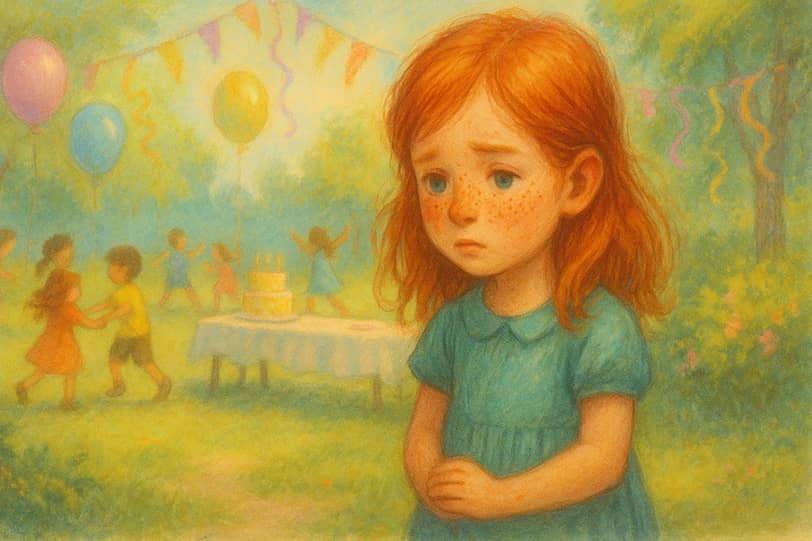
Conclusion
Children’s speech difficulties aren’t just about correct pronunciation or phrasing. They deeply affect a child’s emotional world, shaping their self-perception and relationships with others. The connection between speech and self-esteem is much stronger than many realize—every hurtful remark, every instance of teasing or misunderstanding leaves a mark on a young psyche. However, it’s crucial to remember: childhood lays the foundation for self-perception that lasts a lifetime, and our task is to ensure this foundation is strong and healthy.
The most important thing parents can do is recognize the problem early and provide proper support. Don’t count on the child “outgrowing it,” but don’t panic at the first speech errors either. The wisest approach balances attentive concern with faith in your child’s potential. Create an atmosphere where the child feels accepted even with imperfect speech, where attempts to communicate are encouraged, and mistakes are gently corrected without excessive focus on failures. Such an environment is the best prevention of psychological consequences from speech disorders.
Today, with speech therapy and child psychology having made significant advances, we can confidently say most speech problems can be corrected. Moreover—by working with specialists and loving parents, many children not only catch up to their peers in speech development but also gain valuable lessons in overcoming challenges.
Confidence lost due to speech problems can indeed be restored—sometimes made even stronger than before. The key is to offer help at the right time, be patient, and remember: every child deserves to have their voice heard and their words understood. Behind all speech difficulties lies a unique personality learning to express itself in this world, and our task is to help them do so freely and confidently.


